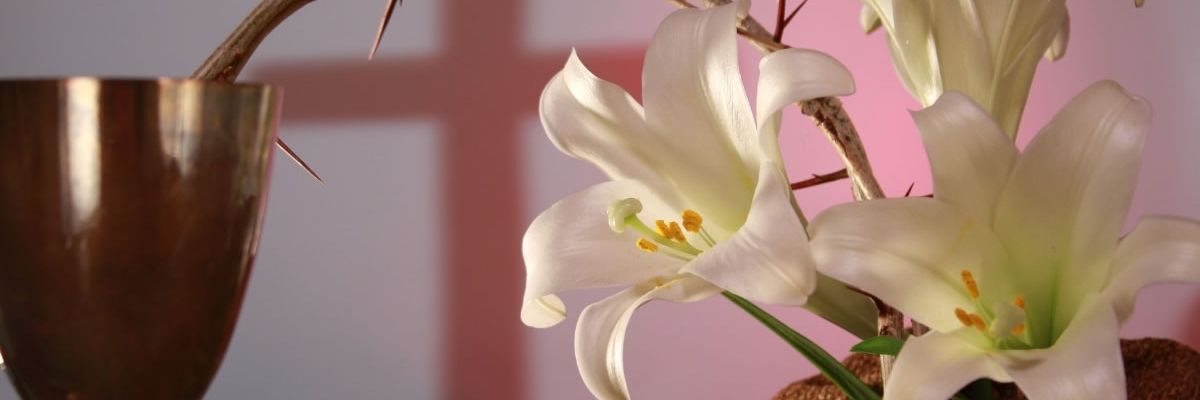
Listen to the sermon preached to you by the flowers, the trees, the shrubs, the sky, and the whole world. Notice how they preach to you a sermon full of love.
I began to believe that the world would be saved by beauty. It was this beautiful, natural world that slowly led me back to God.
When we think about nature (if we think about it at all) it’s usually as the pretty or useful backdrop to the story of humankind. The non-human members of our earth family are there for our absentminded amusement or our merciless plundering.
But what we don't think of non-human nature as is as the protagonist of its own destiny, a main character alongside humans in the story of life.
This attitude has damaged our relationship with the rest of our earth family. It's the attitude that underpins the personal beliefs and socio-economic systems that make our ecocide possible.
In the words of Fr. John Leydon, SSC, “we no longer have a wholesome grasp of what the world is and what it is to be a human. The task [before us] is to create a new culture by exposing the bankruptcy of the present culture and envisioning a new one.”
As we celebrate Holy Week during this age of ecological crisis, we have an opportunity to begin to imagine this new culture. The life of Jesus and the events of Holy Week give us the materials to do this.
The life of Jesus as a model for creation care
The members of our earth family were faithful and comforting companions to Jesus throughout his difficult ministry.
The Gospel of Mark tells us that wild animals accompanied Jesus during his 40-day fast in the desert (Mk 1:13). All four Gospel describe a dove descending to celebrate Jesus’ baptism. Numerous times throughout the Gospels, Jesus goes to wild places like deserts, mountains, and the sea to reconnect with God. And in the Gospel of Matthew, the earth itself quakes in mourning at Jesus’ execution (Mt 27:51).
Jesus extended to the earth and its creatures the same care and affection they showed him. In Matthew, Jesus says that not even two sparrows sold for a penny “fall to the ground outside [God’s] care” (Mt 10:29). In an earlier chapter in Matthew’s gospel, Jesus says that even though birds “do not sow or reap, [and] gather nothing into barns, your heavenly Father feeds them” (Mt 6:26).
We commonly interpret these verses to say that Jesus is using imagery from nature to make it easier for his listeners to understand his teachings. While Jesus did often rely on parable, that human-centric interpretation ignores a fundamental truth revealed by the Old Testament: that God has infinite love and concern for all creatures. Even a passing glance at the Old Testament makes this clear.
God called the dry land “earth,” and the basin of water he called “sea.” God saw that it was good. … God made every kind of wild animal, every kind of tame animal, and every kind of thing that crawls on the ground. God saw that it was good (Gn 1:10, 25).
When the bow is in the clouds, I will see it and remember the everlasting covenant between God and every living creature of all flesh that is on the earth (Gn 9:16).
The earth is polluted because of its inhabitants, who have transgressed laws, violated statutes, broken the ancient covenant (Is 24:5).
For every animal of the forest is mine, beasts by the thousands on my mountains. I know every bird of the heavens; the creatures of the field belong to me (Ps 50:10-11).
The Lord is good to all, compassionate to every creature (Ps 145:9).
This is a small sampling of what the Old Testament reveals to us about the nature of God the Creator and about creation itself. This traditional knowledge is what Jesus learned as a child and preached as an adult.
In Laudato Si’, Pope Francis puts it simply: “Jesus lived in full harmony with creation, and others were amazed” (LS no. 98). We have a responsibility to do the same (cf. LS no. 217).
But how? For most of us who’ve grown up in wealthy countries, we did so in prefabricated, air-conditioned bubbles. What’s more, for us and for many others, we’ve abandoned the traditional practices that grew out of our ancestors’ relationship with their homelands and kept them tethered to it.
Nowadays most of us don’t have a meaningful relationship with nature, or intimate knowledge of the lands we live on or the creatures we share them with.
But as we move through Holy Week, we can learn valuable lessons about how to reclaim this aspect of our humanity and how to repair the covenant with our earth family. To read our reflections for each day of Holy Week, click on the links below:
- Log in to post comments
 St. Columban Mission for Justice, Peace and Ecology
St. Columban Mission for Justice, Peace and Ecology